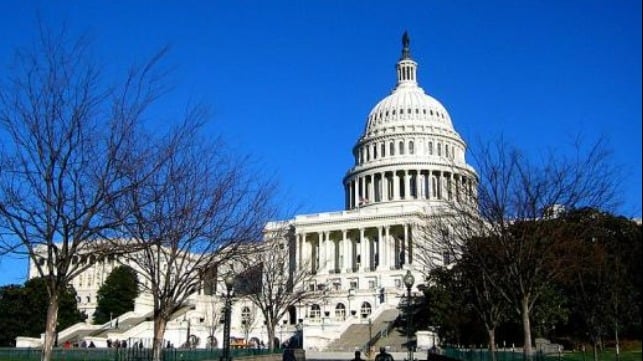Congress Overrides Trump's Veto, Enacting Maritime Priorities in NDAA

The U.S. Senate voted Friday to override President Donald Trump's veto of the National Defense Authorization Act (NDAA) for FY2021, joining the House to continue an unbroken 60-year tradition of passing an annual military policy bill. In addition to servicemember pay, weapons procurement and other defense-related measures, the package contains countless legislative amendments on parallel matters - including high-priority questions for the American maritime industry, like financial relief for U.S. seaports, new rules for passenger vessel safety, and new language that applies federal offshore energy regulations (and the Jones Act) to offshore wind farms.
The NDAA contains language that ensures that offshore wind farms count as U.S. points for purposes of federal law, just like offshore oil and gas facilities. This provides certainty that foreign-flag vessels cannot be used to carry goods between U.S. ports and wind projects on the U.S. outer continental shelf.
According to the American Maritime Partnership, the NDAA also clarifies the terms and procedures that apply when an emergency administrative Jones Act waiver can be issued. In particular, a national defense waiver must be tied to a legitimate national defense need; non-defense waivers are now time-limited; and all waivers are subject to public reporting requirements whenever they are used.
“As we end this most challenging year, we are encouraged by Congress’s recognition of the contributions American Maritime makes to our security and to a healthy and resilient American economy,” said Michael Roberts, President of the American Maritime Partnership. “We are also grateful for the tangible progress made in this bill to reinforce the requirement that those who do work in our home waters must hire American workers and obey American laws. We look forward to building on that progress in the next Congress.”
The now-enacted law also creates a new Maritime Transportation System Emergency Relief Program (MTSERP) to provide funding to ports after natural disasters and emergencies, including the COVID-19 pandemic. It also raises the authorized funding level for the Port Infrastructure Development Program (PIDP) to $750 million annually, up from $500 million.

that matters most
Get the latest maritime news delivered to your inbox daily.
The NDAA also requires the Government Accountability Office to conduct an audit of federal agencies' compliance with long-ignored cargo preference laws, which require government-owned and government-financed cargoes to ship aboard U.S.-flagged vessels. The audit will examine the degree of agency staff and contractor compliance, along with the past levels of enforcement effort by the Maritime Administration.
The NDAA also provides coastwise trade endorsements for three specific vessels that might not otherwise qualify. These include the St. Kitts-flagged cruise ship Safari Voyager; the formerly Russian-flagged expedition yacht Pacific Provider; and the Canadian-built tall ship Oliver Hazard Perry.
